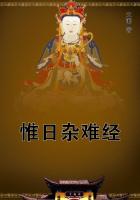THE COUNT DE PUYMANDOUR.
Since the death of the Duchess of Champdoce the greater portion of the Chateau had been closed, but the reception rooms were always ready to be used at a very short notice.
The dining-room was a really magnificent apartment.There were massive buffets of carved oak, black with age, ornamented with brass mountings.The shelves groaned beneath their load of goblets and salvers of the brightest silver, engraved with the haughty armorial bearings of the house of Champdoce.
Standing near one of the windows, Norbert saw a man, stout, robust, bald and red-faced, wearing a mustache and slight beard.His clothes were evidently made by a first-rate tailor, but his appearance was utterly commonplace.
"This is my son," said the Duke, "the Marquis de Champdoce.Marquis, let me introduce you to the Count de Puymandour."This was the first time that his father had ever addressed Norbert by his title, and he was greatly surprised.The great clock in the outer hall, which had not been going for fifteen years, now struck, and instantly a butler appeared, bearing a massive silver soup tureen, which he placed on the table, announcing solemnly that his Grace was served, and the little party at once seated themselves.A dinner in such a vast chamber would have been rather dull had it not been enlivened by the amusing tales and witty anecdotes of the Count de Puymandour, which he narrated in a jovial but rather vulgar manner, seasoned with bursts of laughter.He ate with an excellent appetite, and praised the quality of the wine, which the Duke himself had chosen from the cellar, which he had filled with an immense stock for the benefit of his descendants.The Duke, who was generally so silent and morose, smiled buoyantly, and appeared to enjoy the pleasantries of his guest.Was this only the duty of the host, or did his geniality conceal some hidden scheme? Norbert was utterly unable to settle this question, for though not gifted with much penetration, he had studied his father's every look as a slave studies his master, and knew exactly what annoyed and what pleased him.
The Count de Puymandour lived in a magnificent house, with his daughter Marie, about three miles from Champdoce, and he was exceedingly fond of entertaining; but the gentry, who did not for a moment decline to accept his grand dinners, did not hesitate to say that Puymandour was a thief and a rogue.Had he been convicted of larceny, he could not have been spoken of with more disdainful contempt.But he was very wealthy, and possessed at least five millions of francs.Of course this was an excellent reason for hating him, but the fact was, that Puymandour was a very worthy man, and had made his money by speculation in wool on the Spanish frontier.For a long period he had lived happy and respected in his native town of Orthez, when all at once he was tempted by the thought of titular rank, and from that time his life was one long misery.He took the name of one of his estates, he bought his title in Italy, and ordered his coat-of-arms from a heraldic agent in Paris, and now his ambition was to be treated as a real nobleman.The mere fact of dining with the eccentric Duke de Champdoce, who never invited any one to his table, was to him, as it were, a real patent of nobility.
At ten o'clock he rose and declared he must leave, and the Duke escorted him the length of the avenue to the great gates opening on the main road, and Norbert, who walked a few paces in the rear, caught now and then a few words of their conversation.
"Yes," remarked Puymandour, "I will give a million down."Then came a few words from the Duke, of which Norbert could only catch the words, "thousands and millions."He paid, however, but little attention, for his mind was many miles away.Since the unlooked-for meeting with that fair young face, he had thought of nothing else, and he mechanically shook hands with, and bade his guest "Good-night" when his father did.
When the Duke was sure that M.de Puymandour could not hear his voice, he took his son by the arm, and the bitterness of feeling which he had so long repressed burst forth in words.















